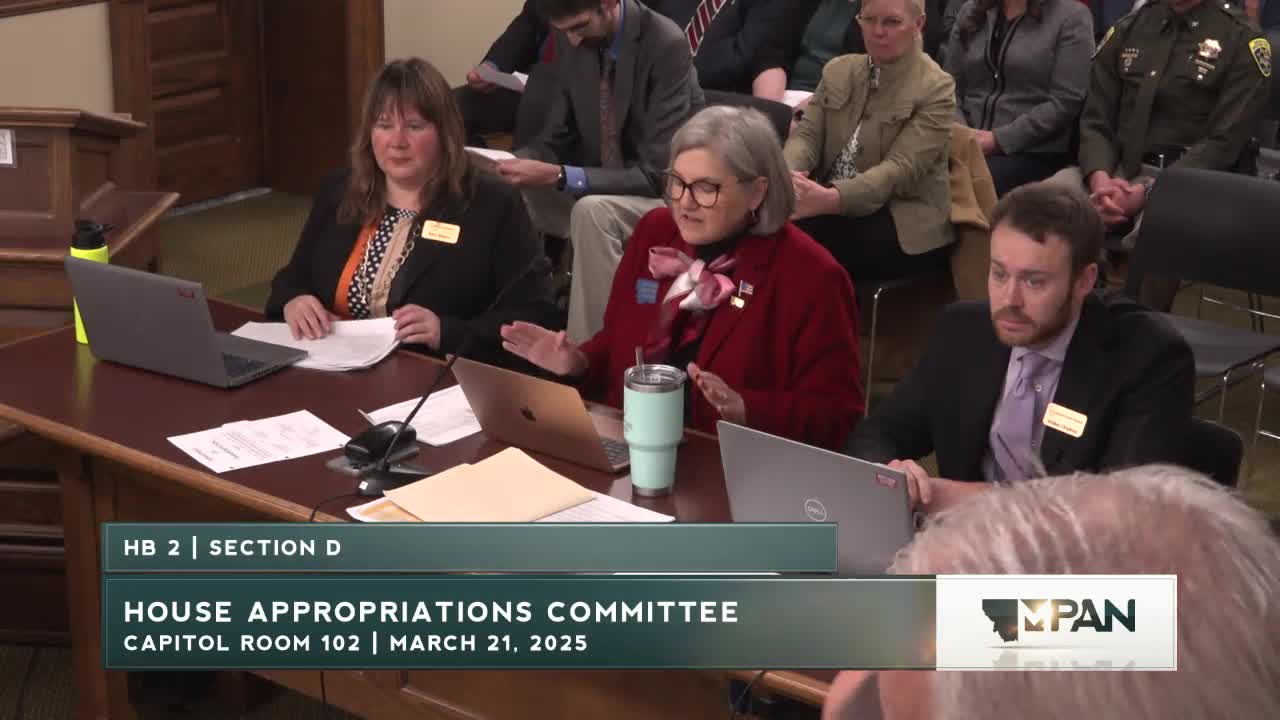Article not found
This article is no longer available. But don't worry—we've gathered other articles that discuss the same topic.
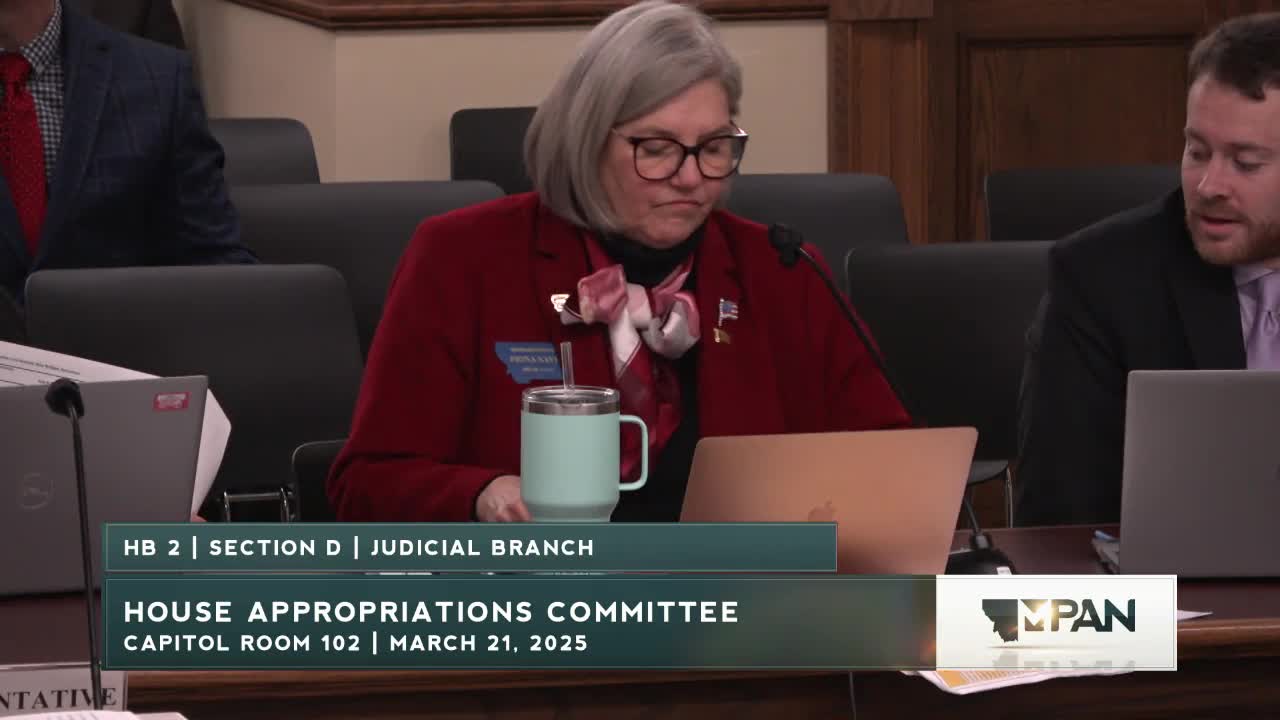
Corrections wins partial program funding; lawmakers press for cost‑per‑student data on rehab programs
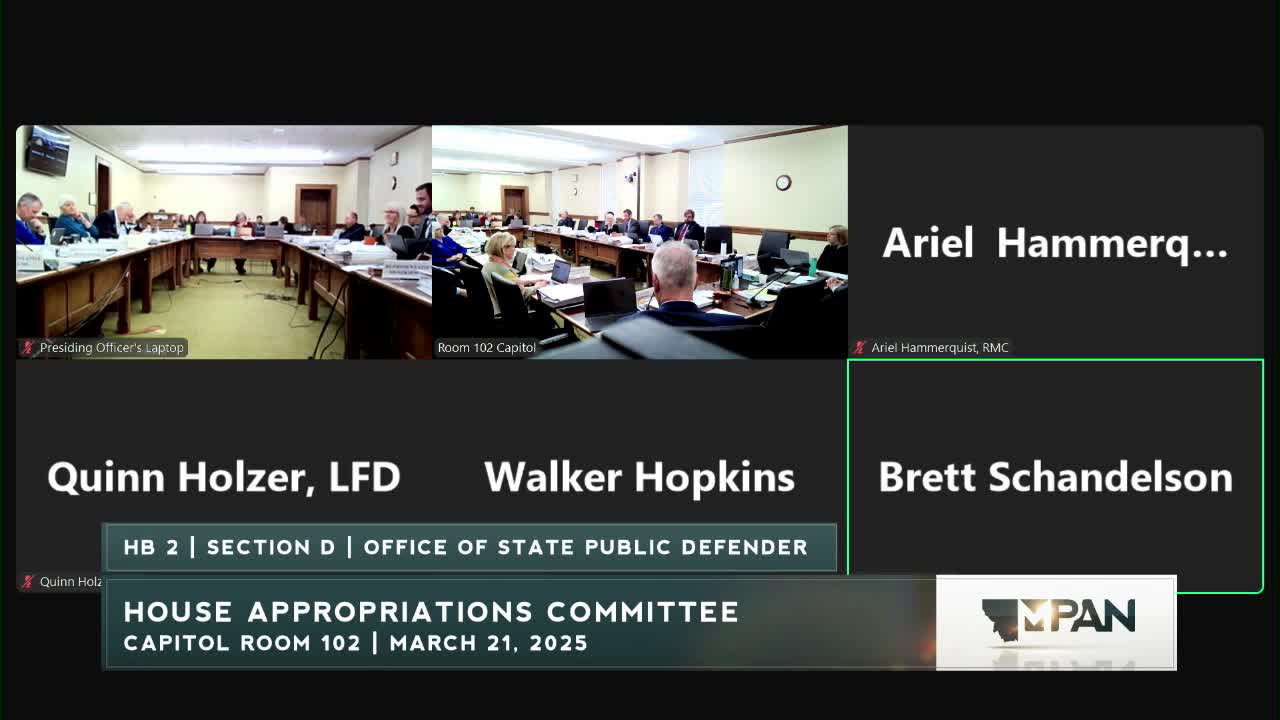
Judicial branch seeks pretrial funding, two judges for Yellowstone County amid overcrowded jail
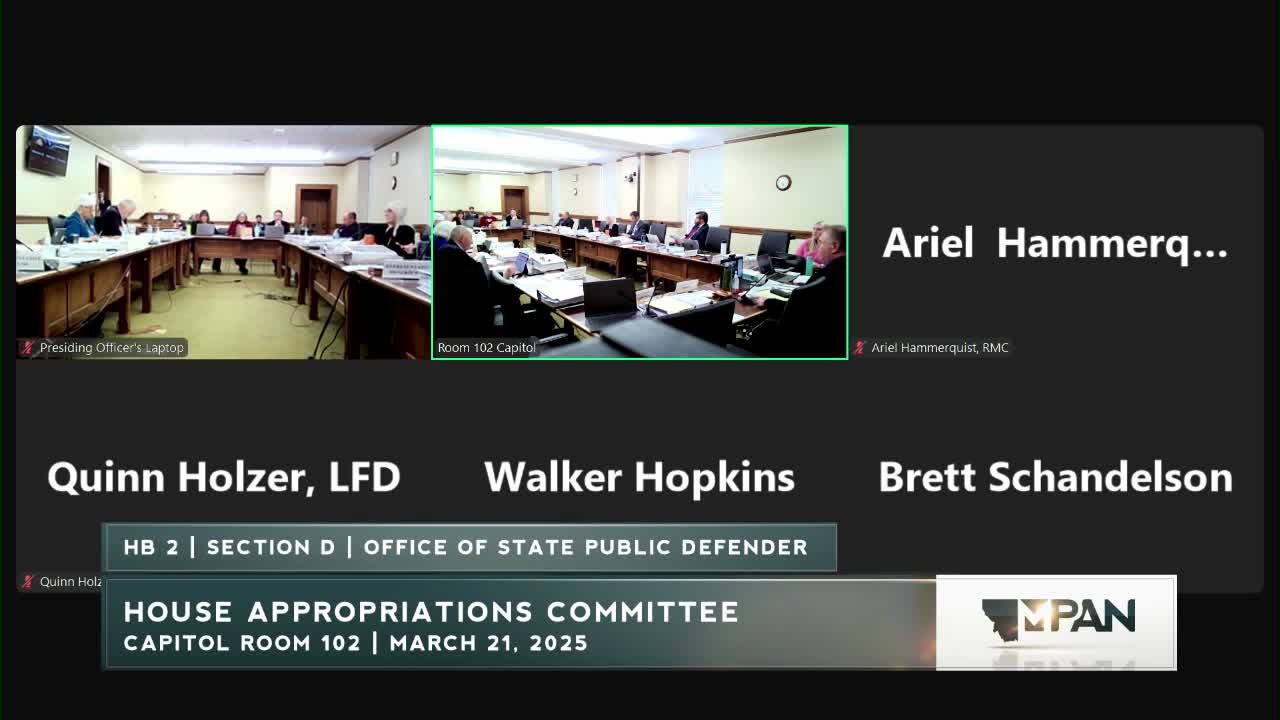
Office of Public Defender says it needs dozens more attorneys; lawmakers approve partial increase, propose study
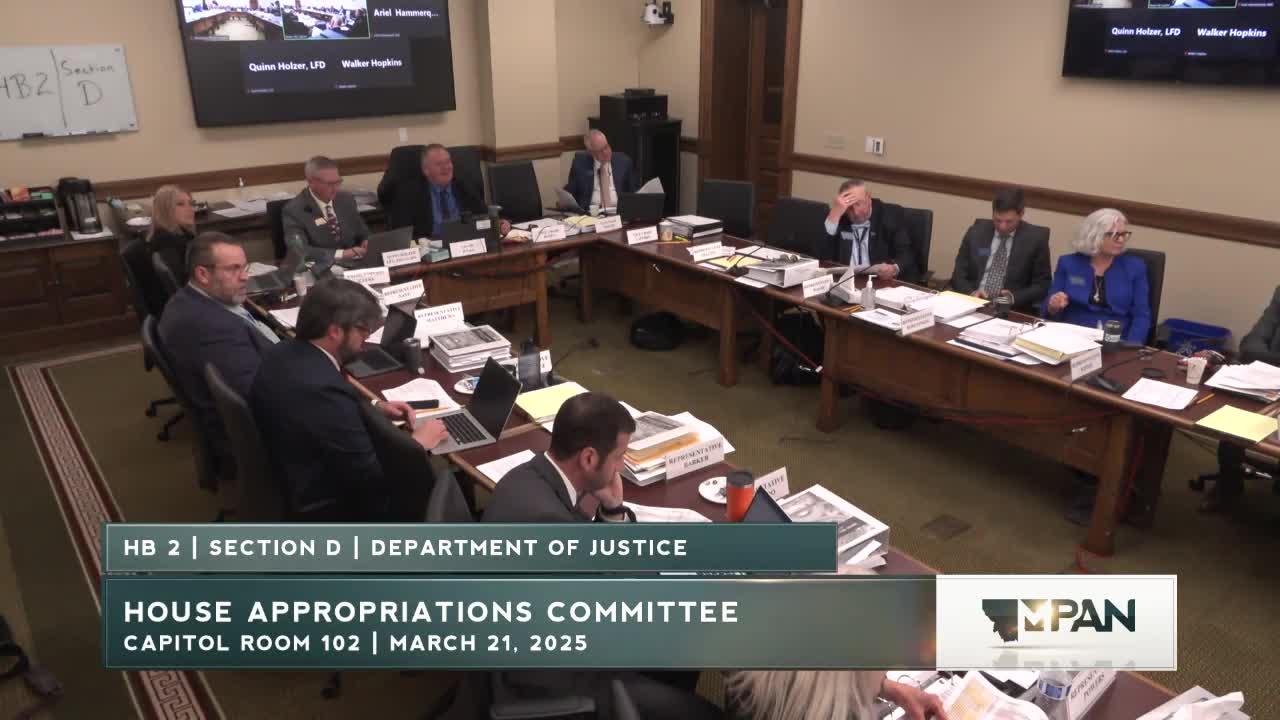
Attorney General urges pay boosts for highway patrol; committee debates funding source
